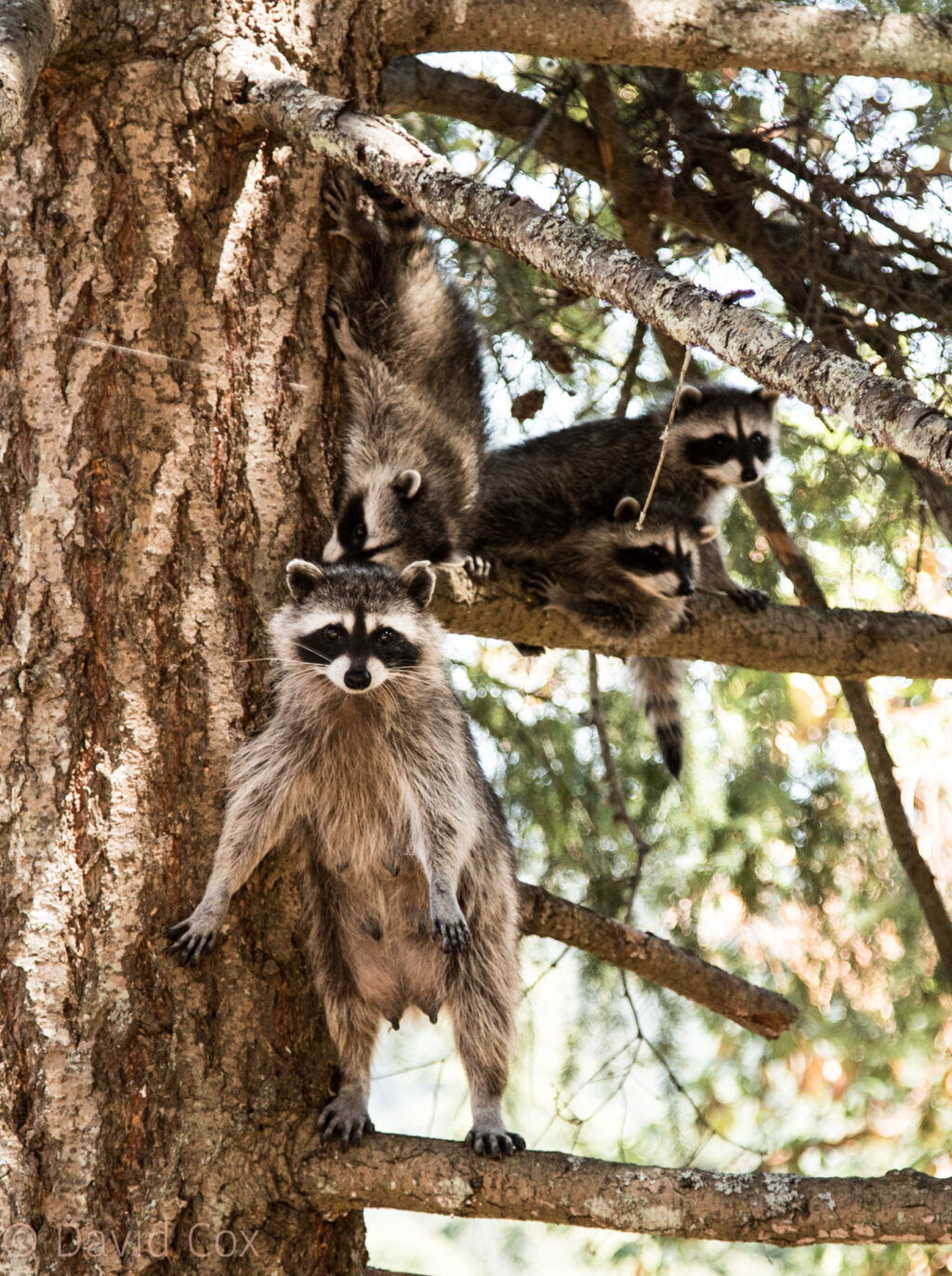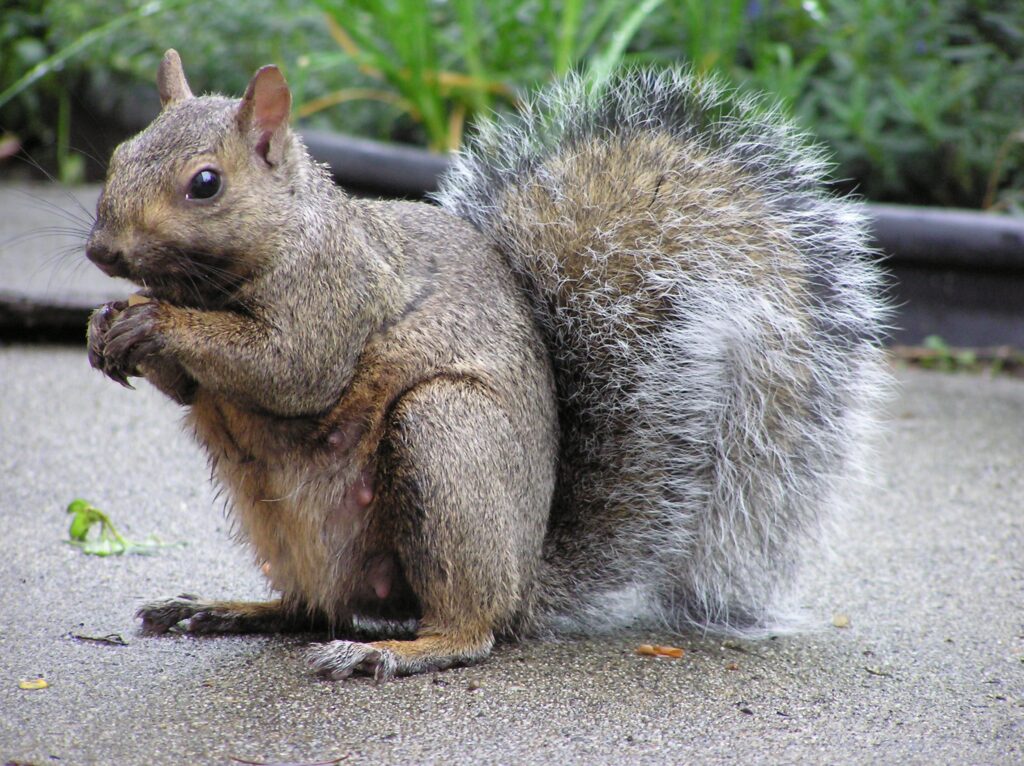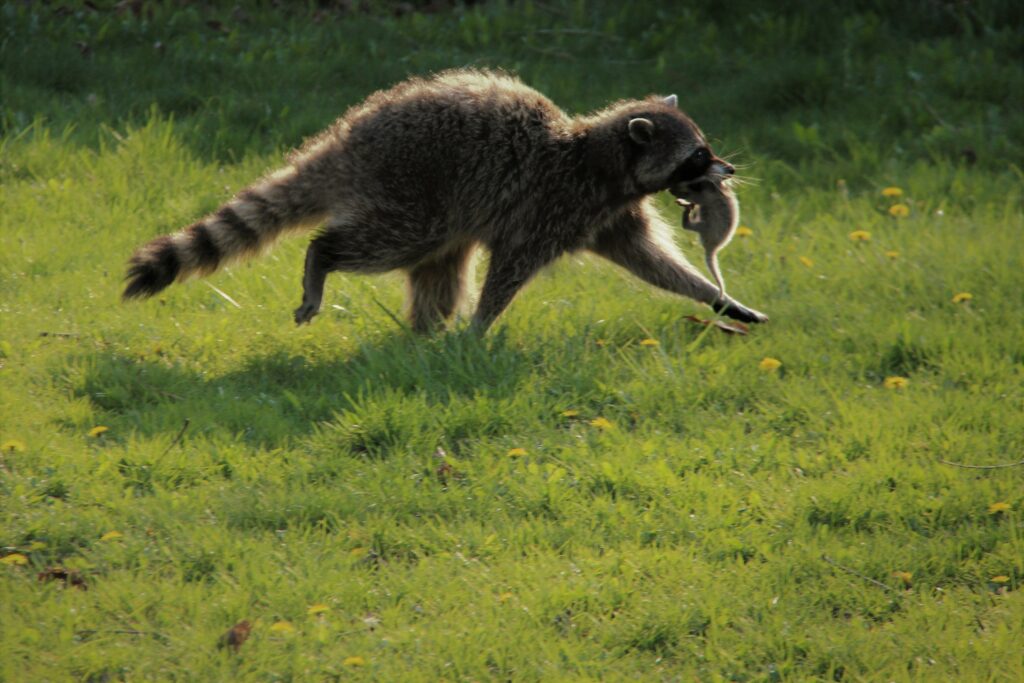Watch for wild babies during spring cleaning
“Hi, we had a squirrel in our attic, and we hired a wildlife removal company a few days ago. We just went up there to see how they did, and it looks like there’s babies here, all alone… we’re not sure what to do…”
Calls to the BC SPCA just like this one aren’t unusual in spring and summer – peak baby season for wild animals. People often turn to removal companies, expecting that these services will treat the animals safely and humanely. However, wildlife control is an unregulated business in B.C., meaning anyone can get into this industry.
Without the right knowledge or experience, mother animals get evicted, but their wild babies get left behind.

When is baby season for urban wildlife?
Spring and summer are the peak months for many wild animals to have and raise their babies. As we’re starting into the spring season, keep an eye out for these critters and their little ones:
- Squirrels: have up to two litters of babies, in early spring and summer. Beware! Squirrels may have their first litter of babies as early as February in some cases.
- Skunks: have one litter of four to six babies in spring.
- Raccoons: have one litter of three to four babies in late spring/early summer. Like squirrels, they might also surprise you with early or late-season babies!
- Baby birds: every species has their own pattern, but in general, look out for baby birds from April all the way through to August.
When doing any spring cleaning or repair work, always check thoroughly for any wild babies before closing off entries or sealing holes.
Wildlife behaviour when babies are born
While the babies are young, they rely on their parents for food. The babies are too young to follow their mother right away, so she will make frequent trips to and from the nest or den to feed herself or gather food for the babies. If the animal has already made a cozy den in an attic, chimney, or crawl space, you may notice an adult coming and going a few times a day. Seeing an animal coming and going is often a sure sign that they have babies inside.
For birds, you might also notice them carrying materials to and from a nest site. Depending on the species, you might see birds with grasses, sticks, moss and other soft material. If you see these materials sticking out of holes or vents around your home, it’s likely a sign of a bird nesting.
Appearance of animal mothers
What makes mammals unique is their milk-producing mammary glands to feed their babies. For squirrels, raccoons, skunks and other mammals, you can often spot a new mom by her visible nipples.

Look at the squirrel photo above, and you’ll notice it’s likely she’s a new or expecting mother. During baby season, you might also notice squirrels with missing or patchy fur around their chest and back in sort of a “waistcoat” pattern. It’s not sickness, it’s a sign of parenthood! Mother squirrels will sometimes help insulate their nests (called dreys) with their own fur, pulling out the most easily accessible fur.
Hire AnimalKind
Too often, concerned homeowners hire companies to close up the holes of visiting animals and “fix” the problem – not knowing or checking whether there are babies still inside.
AnimalKind companies specialize in excluding animals while keeping the whole family together to ensure no one gets left behind. For mammals, this means using one-way doors. One-way doors are installed at the entrance, so animals can get out but not back in. Once out, the technician can go inside and collect any babies. The babies will be placed in a heated reunion box nearby, so their mother can come back and collect them. She will move the babies one by one to an alternate den site.

For birds, technicians are often able to move the nests to an alternate location very nearby – helping them get to a safer spot without confusing mom.
Sometimes a little bit of patience is the best solution. Depending on the situation, AnimalKind companies may advise you to wait a few days or weeks before removal. Just that little bit of extra time means baby birds can leave the nest on their own, or baby mammals will be old enough to follow their mother out.
Once the animals are out, AnimalKind companies can repair holes or damage to prevent future break-ins.
Knowing about baby season and recognizing the signs of new parents can help you make a more informed decision. If you don’t live in an area with an AnimalKind company, follow our tips for finding a company or asking them to follow AnimalKind standards.